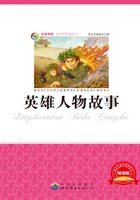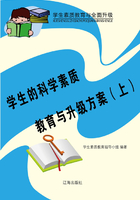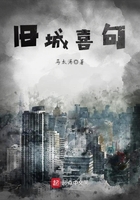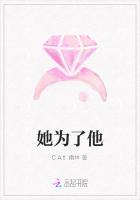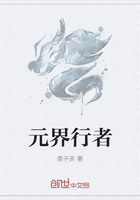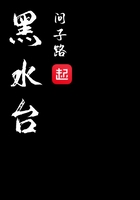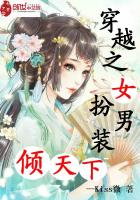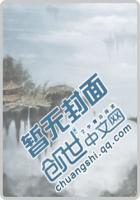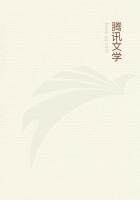The work of making parchment and writing it by hand made a book very hard to get in days gone by. What a big step forward it was when paper and print were made. First paper was made from cloth. Today most paper is made of wood pulp. But the most important invention was the printing press. The printing press had movable pieces of print that could be set up as a page for a book. With ink rolled over the print and paper pressed onto it, a whole page was made at one time. Many pages could be made easily before the next page of print was set up. The writing did not have to be done by hand each time. After a long time, books became common and did not cost so much. Today, huge presses make newspapers every day. Just about everyone can read the news and know what is happening in the world.
Being able to send messages by mail is another big step in communication. A person can write a letter, put a stamp on it, and send it.
Anywhere in the world, at first letters were carried by horses and riders. This way was called the Pony Express. Today most mail travels by airplane and truck.
Telephone
People still talk to other people. As man found out more about his world, he used what he learned to communicate from distances.
Over 100 years ago the telegraph was invented. The telegraph was a way of sending messages over wires. Samuel Morse made up an alphabet of dots and dashes known as the Morse Code. These long and short signals were sent great distances over wires.
The next step was made by Alexander Graham Bell. He believed voices could be sent along a wire, too. After a lot of thought and work, Bell invented the telephone. Today we can talk to someone hundreds of miles away using the telephone.
Radio and television
The time came when men decided that sound could be sent without wires. They learned that voices and music could be sent through the air and picked up by a special receiver. This invention was first called the wireless. Today we call it the radio. People used the radio for fun by listening to music and stories. They also listened to the news.
The next invention sent pictures through the air. The receiver for the pictures was the television. The first television was in black and white. Now color televisions often are used. Soon some telephones will have small televisions so you can see the person you are talking to.
Satellites and computers
To make pictures travel farther, satellites are used. Satellites travel in space around the earth. They pick up signals and send them out again. This way a television station on one side of the world can send a signal to a satellite. The satellite sends the signal on to a station on the other side of the world. One famous satellite is named Telstar.
Computer are becoming a very important way to communicate, At first computers were just machines that could do mathematics very fast. Now they do much more. They store words and thoughts and sort through them for particular things. Stores now use computer to check groceries out and to reorder them at the same time. Computers can solve hard problems quickly. Computers are used by airlines to help make sure you get on the right plane. Computers are now widely used in business and science.
Vocabulary 词汇
parchment ["pɑ:t?m?nt] n. 羊皮纸、上等纸、印在上等纸上的正式文字
pulp [p?lp] n. 果肉、纸浆 、低级书刊
movable ["mu:v?bl] adj. 活动的、可移动的
ink [i?k] n. 墨水、油墨
just about 大约、马上、几乎
stamp [st?mp] n. 邮票、图章、印记、顿足;
vt. 贴邮票于、在……盖章;
vt. & vi. 顿足
Pony Express n. 驿马快信的制度
telegraph ["teliɡrɑ:f] n. 打电报、电报机;
vt. & vi. 打电报传达(消息)
alphabet ["?lf?bit] n. 字母表
dot [d?t] n. 点、小圆点;
vt. 以小圆点标出、分布各处、击打(某人)
dash [d??] vi. 冲、猛冲;
vt. & vi. 猛掷、(使)猛撞;
n. 猛冲、飞奔、少许、破折号
wireless ["wai?lis] adj. 不用电线的、用无线电波传送的;
n. 无线电
satellite ["s?t?lait] n. 卫星、人造卫星
mathematics ["m?θi"m?tiks] n. 数学
sort [s?:t] n. 群、种类、类别、某种人;
vt. & vi. 分类、整理
grocery ["ɡr?us?ri] n. 杂货业、杂货店
Practice
I.Write yes if the sentence is true. Write no if the sentence is not true.
1.Sound can be sent without wires.
2.The wireless is what we call Morse Code.
3.Man can send pictures through the air.
4.We can hear the news on the radio.
5.The first pictures sent through the air were in color.
6.Someday you may see the person you are talking to on the telephone.
7.Large flat pieces of stone are called parchment.
8.Newspapers tell people what is happening in the world.
II.Write the lines using words from the story.
The man who invented the telephone was .
The man who made the alphabet of dots and dashes was .
These dots and dashes are called the .
Many copies of a piece of writing could be made on a .
Most paper today is made of .
An early way to send mail was called the .
A radio used to be called a .
Something that helps send signals around the world is a .
译文
一直以来,人们都在不断寻找与别人交流的新途径。他们学会了与距离很远的人们交谈,写作不再只能手写,通过电波、图片和声音甚至可以被传送到太空,人们还可以接受从太空发送过来的图片、声音。
书 写
在过去那些用羊皮纸手写的日子,得到一本书是很难的事情。当纸和印刷术发明之后,我们向前迈出了一大步。第一张纸是用布做成的,现在许多纸都由木浆制成,但最重要的发明还要数印刷机。印刷机的活动印版可以设置成一本书的一页,当印版上的油墨辗过纸张时,需要印刷的内容就留在纸上,整页的印刷在同一时间完成。在下一页印版设置好之前,可以轻松地印刷许多页。这样,著作就不用每次都用手抄了。过了一段时间之后,书变得非常普及,不再那么昂贵了。今天,巨大的印刷机每天印刷报纸,几乎每个人都可以阅读新闻,知道世界上发生了什么事情。
能够发送信件的邮箱是通讯的另一大进步。人们可以写一封信,然后贴上邮票,把它寄出去。
在世界上任何地方,最初,信件都是由马匹和骑手传递的,这种方式被称为驿马邮递。今天,许多邮件是由飞机和卡车运送的。
电 话
人们要同其他人交谈。当人类对自己的世界认识更多的时候,他用自己学到的东西和距离很远的人交流。
在100多年前,人们发明了电报。电报是一种通过电线发送信息的方式。塞缪尔·摩尔发明了一种由点和破折号组成的字母表,被称为摩尔电码。这些或长或短的信号,通过电线被传送到很远的地方。
下一个步骤是由亚历山大·格雷厄姆·贝尔完成的。他认为声音也可以通过一条电线传输,经过大量的思考和工作之后,贝尔发明了电话。今天,通过电话,我们可以与千里万里之外的人交谈。
广播和电视
随着时间的流逝,人们认为声音不通过电线也可以传输。他们了解到,声音和音乐可以通过空气传输,然后由一个特殊的接收器接收。这项发明,一开始被称为无线电。今天,我们把它叫做广播。人们通过广播听音乐、听故事,从中获得乐趣,他们还可以收听新闻。
下一项发明是通过空气传送图片,图片的接收者是电视机。第一台电视台是黑白的,现在我们通常用的是彩电。不久,将有一些电话安装小电视,这样你就可以看到与你交谈的人。
卫星和计算机
为了使图片传送得更远,人们使用了卫星。卫星在太空中围绕着地球航行。它们接受信号,再将其发送出去。通过这种方式,在世界这一侧的电视台把信号发送给卫星,卫星把信号传送到在世界另一侧的电视台。有一种有名的卫星被命名为通讯卫星。
计算机正在成为一种非常重要的通讯方式。一开始,计算机只是一种可以快速做数学题目的机器。现在,它们做非常多的工作。它们存储词汇和想法,我们做某些事情时可以通过它们分类整理信息。现在,商店使用计算机来核对货物并且同时重新整理它们。电脑可以迅速解决一些难以解决的问题,航空公司使用电脑以确保你搭乘了正确的航班。现在,电脑在商业和科学领域被广泛应用。
练习
Ⅰ.如果下面句子是正确的,就写上yes,如果是错的,就写no。
1.没有电线,声音也可以传送。
2.无线电就是我们所说的摩尔电码。
3.人们可以通过空气传送图片。
4.我们可以通过电台收听新闻。
5.第一张通过空气传输的图片是彩色的。
6.有一天,通过电话你会看到跟你说话的人。
7.大块的平整石头被称为羊皮纸。
8.报纸告诉人们世界上正在发生的事情。
Ⅱ. 使用文中出现过的词汇填空。
1.发明了电话的人是 。
2.那个发明了用点和破折号组成字母表的人是 。
3.这些点和破折号被称为 。
4.通过 一页作品可以产生许多副本。
5.今天,许多纸张由 制成。
6.早期传递邮件的方式被称为 。
7.广播过去被称为 。
8.可以帮助信号在世界各地传送的事物是 。
Ⅰ.1.yes 2.no 3.yes 4.yes 5.no 6.yes 7.no 8.yes



